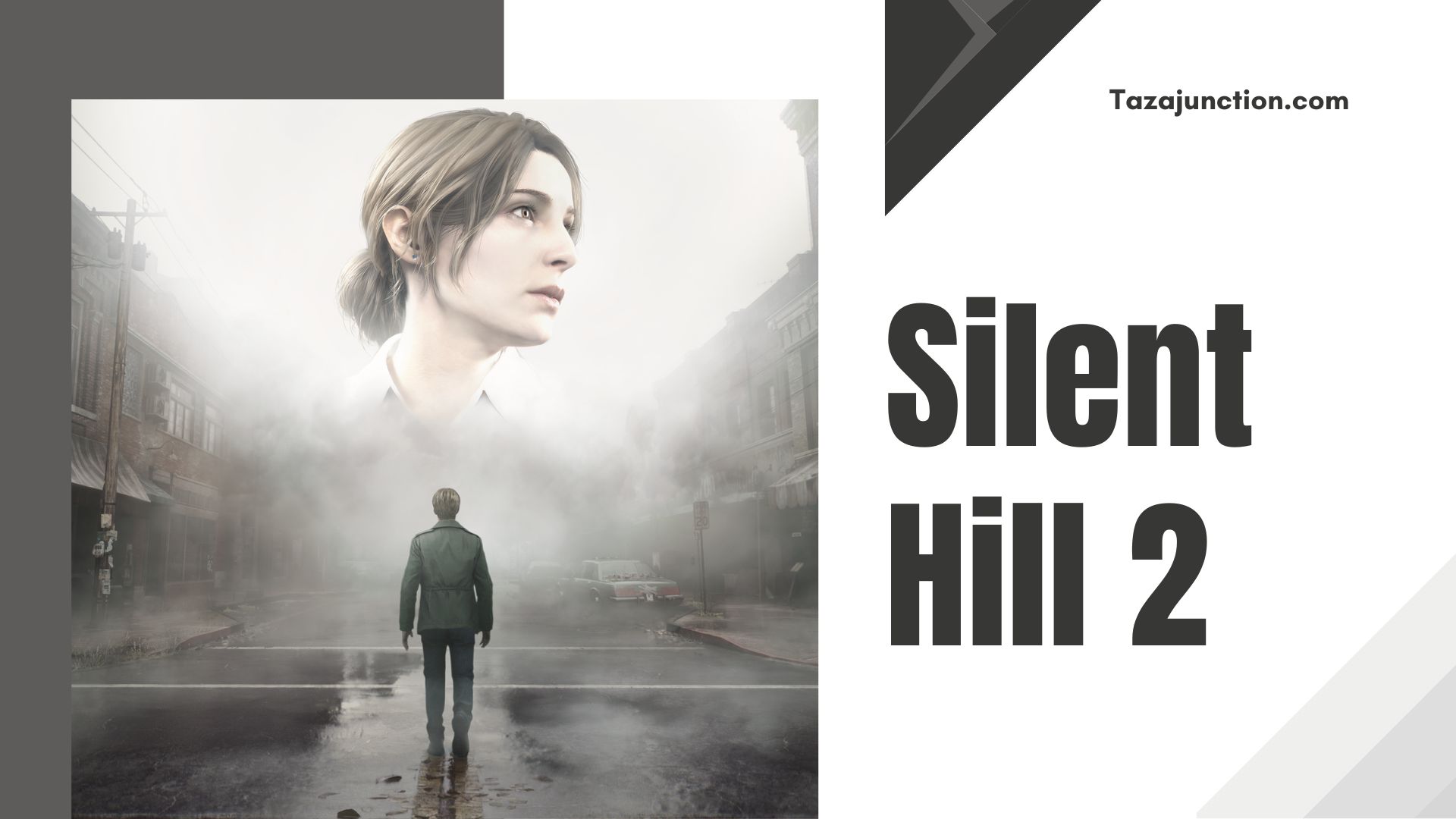The horror gaming community thrives on analysis, interpretation, and fan theories. Few games invite as much psychological speculation as Silent Hill 2, a title often praised for its complex protagonist and layered storytelling.
However, recent online discussions took a dramatic turn when a Silent Hill 2 developer publicly addressed what he called “fan ignorance” regarding theories about the game’s main character, James Sunderland.
This rare moment of direct commentary from a game creator reignited debates across forums, social media, and gaming circles. The backlash, the support, and the lingering questions highlight the passionate relationship between fans and the creators behind their favorite stories.
But what exactly happened? And why did a Silent Hill 2 developer feel the need to speak out after all these years?
Let’s explore with TazaJunction.com the controversy, the context, and what this means for the legacy of one of horror gaming’s most celebrated masterpieces.
Table of Contents
A Legacy of Interpretation
Released in 2001, Silent Hill 2 quickly distinguished itself from typical survival horror games by leaning heavily into psychological horror. Instead of focusing solely on monsters and gore, the game examined grief, guilt, and denial through the lens of its troubled protagonist, James Sunderland.
For over two decades, fans have dissected every line of dialogue, every symbol, and every enemy design. Theories about James’s motivations, his mental state, and the true nature of the town have become core parts of the community’s culture. These interpretations have kept Silent Hill 2 relevant for years—especially as new fans discover the game.
However, a recent surge in what one Silent Hill 2 developer considers “misguided” theories appears to have struck a nerve.
The Comments That Sparked the Debate
The controversy began when a longtime Silent Hill 2 developer, involved with narrative direction and character design, responded to a viral fan theory on social media.
The theory claimed that James was a “completely innocent victim of supernatural manipulation” and that his actions in the game were justified as a form of self-defense against forces beyond his control.
In response, the developer commented:
“It’s frustrating to see people still misinterpreting the character. James is not a victim. He’s a man consumed by guilt, and the game is a reflection of that. These takes ignore the entire point of the narrative.”
He went on to criticize what he described as “fan ignorance,” saying that simplifying James into a passive victim strips away the entire purpose of the game’s story.
The Silent Hill 2 developer emphasized that the team intentionally left ambiguity in certain scenes, but the core emotional truth about James’s actions should not be lost in fan reinterpretation.
Why the Statement Matters?

It’s rare for a Silent Hill 2 developer to directly address fan theories in this manner. Most developers, especially those behind cult classics, tend to let their work speak for itself and embrace multiple interpretations. This direct and somewhat confrontational response therefore caught the attention of longtime fans and newcomers alike.
The developer’s statement matters because it brings into question the balance between authorial intent and fan interpretation. Does a game’s meaning belong solely to its creators, or do players have the right to interpret it however they wish? When a game like Silent Hill 2 leaves space for ambiguity, who decides what’s valid?
These are big questions—and the developer’s blunt critique reignited them all over again.
A Divided Community
The response from fans has been mixed. Some applaud the Silent Hill 2 developer for standing up for the integrity of the original story and reminding players of its emotional depth. They argue that in a time when online speculation often runs unchecked, it’s refreshing to hear from someone who helped build the experience.
Others, however, feel that the developer’s comments were dismissive or even disrespectful. Many argue that Silent Hill 2 has always encouraged interpretation and that fans should be allowed to find personal meaning in James’s journey—even if it doesn’t align perfectly with the original vision.
Some fans point out that their theories are not attempts to rewrite the story but to explore alternative perspectives that enhance their understanding of the game. By calling them ignorant, they feel the Silent Hill 2 developer shut down a community that has kept the game alive for decades.
Artistic Intent vs. Player Interpretation
This situation highlights a long-standing debate in all forms of art: should the creator’s intent override the audience’s interpretation?
The Silent Hill 2 developer clearly believes that certain readings of James’s character cross a line—that they risk undermining the core message of the story. However, games are interactive experiences, and players often form emotional connections based on their unique experiences, choices, and perceptions.
Many fans argue that the beauty of Silent Hill 2 lies in its openness to interpretation. James is intentionally portrayed as an unreliable narrator, and the town itself morphs based on his psychology. In such a setup, multiple interpretations seem not only possible but encouraged.
Still, when one of the game’s original creators steps in to refute a theory, it inevitably carries weight—and controversy.
How This Impacts the Upcoming Remake
Another reason this controversy matters is that Silent Hill 2 is currently being remade. With Bloober Team handling the project and Konami overseeing it, fan expectations are incredibly high. The remake’s goal is to honor the original while updating it for a new generation.
The comments from the Silent Hill 2 developer could be seen as an indication of how closely the team wants to stick to the original themes and intentions. It might also be a warning against misrepresenting James’s character in modern adaptations or discussions.
Some fans worry that modernizing the game might dilute its psychological complexity, while others hope that the remake will clarify ambiguous moments without eliminating player-driven meaning.
Regardless, this new dialogue between fans and a Silent Hill 2 developer shows how emotionally invested the community remains—and how closely the remake will be scrutinized.
The Broader Trend of Fan Critique
This isn’t the first time a developer has spoken out about fan theories, and it likely won’t be the last. In an age where every game is dissected on Reddit, YouTube, and TikTok, developers often find themselves caught between encouraging engagement and defending their artistic vision.
For the Silent Hill 2 developer, the line appears to have been crossed when fan theories started portraying James in a way that undermines the emotional and moral weight of the game’s conclusion. Whether or not fans agree, it’s a reminder that creators still care deeply about how their stories are interpreted.
Final Thoughts
The recent comments from a Silent Hill 2 developer have sparked a necessary and passionate discussion within the gaming community. At the heart of the issue is a central question: who gets to define a story’s meaning—the creator or the audience?
For a game like Silent Hill 2, which thrives on emotional complexity and psychological depth, the answer may not be clear-cut. What is clear, however, is that the game continues to provoke thought, conversation, and emotional responses more than two decades after its release.
Whether you side with the developer’s call for narrative clarity or champion the right of fans to explore their own interpretations, one thing is certain: Silent Hill 2 remains one of the most powerful and debated games in history. And with a remake on the horizon, the conversation around James Sunderland and his legacy is far from over.

